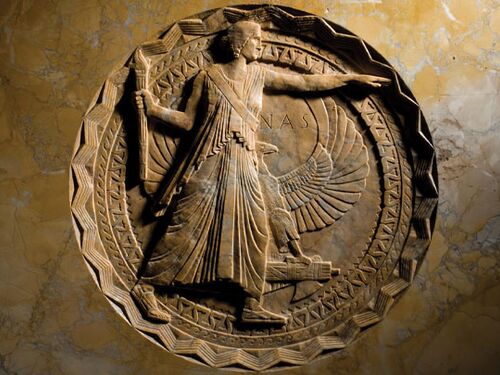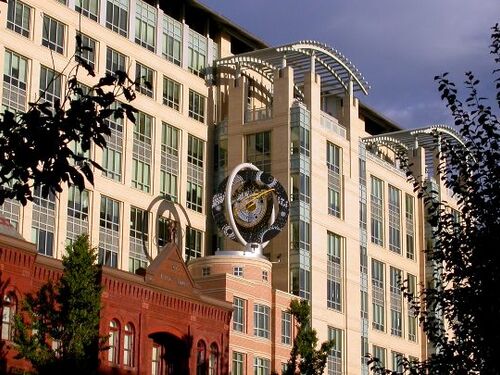Webinar Agenda (All times are Eastern Daylight Times)
To take the post-webinar survey after you've attended, visit https://www.surveygizmo.com/s3/5802819/USNC-TAM-Webinar-Survey-August-2020.
To view the recorded webinar videos of each speaker and the follow-up discussion, visit https://vimeo.com/showcase/7493463.
1:00 pm Welcome and Introductions by Krishnaswamy Ravi-Chandar, University of Texas at Austin and Chair, USNCTAM
1:10 – 2:00 pm AI Algorithms for Mechanics by Anima Anandkumar, California Institute of Technology
2:00 – 2:50 pm Machine learning for Partial Differential Equations by Michael Brenner, Harvard University
3:00 – 3:50 pm Bioinspired Materials by Design using AI by Marcus Buehler, Massachussetts Institute of Technology
3:50 – 4:20 pm Discussions
Speaker and Topic Information
AI Algorithms for Mechanics
Professor Anima Anandkumar, California Institute of Technology
Deep learning and other AI algorithms have yielded impressive performance over the last few years. However, their direct application in scientific domains such as mechanics is not suitable due to a variety of reasons: (i) High-fidelity labeled data is usually limited. (ii) In addition to accuracy, other requirements are critical, e.g. safety and stability in control systems. We design new AI algorithms that incorporate domain-specific structure and constraints in several projects: (1) We develop robust learning methods that guarantee safe exploration and demonstrate its efficacy in control applications such as drone landing and spacecraft simulation. (2) We develop efficient causal learning methods for video data that can help discover the underlying physical properties of interacting objects or particles. (3) We design continuous neural networks that are mesh-free and operate on different discretization and resolutions. This is especially relevant for fluid simulations and we show strong ability for super-resolution. Thus, by integrating traditional methods and domain knowledge into AI algorithms, we can get state-of-art performance in many domains.
Anima Anandkumar is a Bren Professor at Caltech and Director of ML Research at NVIDIA. She was previously a Principal Scientist at Amazon Web Services. She has received several honors such as Alfred. P. Sloan Fellowship, NSF Career Award, Young investigator awards from DoD, and Faculty Fellowships from Microsoft, Google, Facebook, and Adobe. She is part of the World Economic Forum's Expert Network. She is passionate about designing principled AI algorithms and applying them in interdisciplinary applications. Her research focus is on unsupervised AI, optimization, and tensor methods.
Machine Learning for Partial Differential Equations
Professor Michael Brenner, Harvard University and Google Research
I will discuss our ongoing efforts for using machine learning to solve and understand the solutions of nonlinear partial differential equations. A key idea is to use machine learning to find parameterizations of the solutions that give more insight into the dynamics and/or increase computational efficiency. I will focus here on using machine learning to develop models of the small scale behavior of spatio-temporal complex solutions, with the goal of maintaining accuracy albeit at a highly reduced computational cost relative to a full simulation. Intelligently bootstrapping advances in machine learning promise of a paradigm shift in how PDEs in the sciences are solved. The talk will contain a range of examples with toy problems in one spatial dimension (eg. Burgers equation), moving on to 3d fluid turbulence.
Michael Brenner is the Michael T. Cronin Professor of Applied Mathematics and Professor of Physics at Harvard University, where he has been on the faculty since 2001.
His research interests include broad applications of mathematics to the problems in the sciences. His research group at Harvard currently focuses on topics ranging from finding synthetic materials with the properties of living ones, to finding theoretical frameworks for unraveling the design rules of developmental programs, to discovering the temporal events that underlie the turbulent energy cascade. Finding ways that recent advances in machine learning can impact these questions is a broad theme. Michael is also a Research Scientist at Google Research, where he leads a group focusing on developing algorithms to use machine learning to solve partial differential equations.
Bioinspired Materials by Design using AI
Professor Markus Buehler, Massachussetts Institute of Technology
Nature produces a variety of materials with many functions, often out of simple and abundant materials, and at low energy. Such systems - examples of which include silk, bone, nacre or diatoms - provide broad inspiration for engineering. Here we explore the translation of biological composites to engineering applications, using a variety of tools including molecular modeling, AI and machine learning, and experimental synthesis and characterization.
Markus J. Buehler is the McAfee Professor of Engineering at MIT and leads MIT’s Laboratory for Atomistic and Molecular Mechanics. His primary research interests focus on the structure and mechanical properties of biological and bio-inspired materials, to characterize, model and create materials with architectural features from the nano- to the macro-scale. His most recent book, Biomateriomics, presents a new design paradigm for the analysis of biomaterials using a categorization approach that translates insights from disparate fields such as materials and music, and offers a new hierarchical design approach at the nexus of sound and matter. Buehler serves as the president of the board of directors for the Society of Engineering Science, on the executive committee for the MIT Center for Art, Science & Technology (CAST), and others. He is the Editor in Chief of the Journal of the Behavior of Biomedical Materials (JMBBM) and BioNanoScience, and serves on the editorial board of numerous journals. He served as the chair of several conferences, societal committees, and is actively involved in public outreach (including an annual materials research camp at MIT with local middle and high schools), as well as translation of basic research through entrepreneurship. In addition to his teaching at MIT, he offers an annual Professional Education class “Predictive Multiscale Materials Design”. He was recently elected as MRS Fall 2021 Meeting Chair.
Buehler is the recipient of many awards including the Harold E. Edgerton Faculty Achievement Award, the Alfred Noble Prize, the Feynman Prize in Nanotechnology, the Leonardo da Vinci Award, and the Thomas J.R. Hughes Young Investigator Award. He is a recipient of the National Science Foundation CAREER award, the United States Air Force Young Investigator Award, the Navy Young Investigator Award, and the Defense Advanced Research Projects Agency (DARPA) Young Faculty Award, as well as the Presidential Early Career Award for Scientists and Engineers (PECASE). In 2018, Buehler was selected as a Highly Cited Researcher by Clarivate Analytics. In 2019, he received the Materials Horizons Outstanding Paper Prize, and his work was recognized as a highly cited author by the Royal Society of Chemistry.
Additional Resources:
MIT News: Machine-learning tool could help develop tougher materials
https://news.mit.edu/2020/machine-learning-develop-materials-0520
Paper: Nanomechanical sonification of the 2019-nCoV coronavirus spike protein through a materiomusical approach
https://arxiv.org/abs/2003.14258
Q&A: Markus Buehler on setting coronavirus and AI-inspired proteins to music
https://news.mit.edu/2020/qa-markus-buehler-setting-coronavirus-and-ai-inspired-proteins-to-music-0402
Paper: A Self-Consistent Sonification Method to Translate Amino Acid Sequences into Musical Compositions and Application in Protein Design Using Artificial Intelligence
https://pubs.acs.org/doi/abs/10.1021/acsnano.9b02180
Paper: Artificial intelligence method to design and fold alpha-helical structural proteins from the primary amino acid sequence
https://doi.org/10.1016/j.eml.2020.100652
Paper: Sonification based de novo protein design using artificial intelligence, structure prediction, and analysis using molecular modeling
https://aip.scitation.org/doi/full/10.1063/1.5133026
Paper: De novo composite design based on machine learning algorithm
https://doi.org/10.1016/j.eml.2017.10.001
Paper: Liquified protein vibrations, classification and cross-paradigm de novo image generation using deep neural networks
https://doi.org/10.1088/2399-1984/ab9a27





